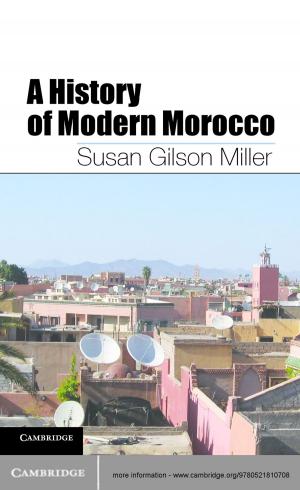The Mamluk City in the Middle East
History, Culture, and the Urban Landscape
Nonfiction, History, Middle East| Author: | Nimrod Luz | ISBN: | 9781107721142 |
| Publisher: | Cambridge University Press | Publication: | April 28, 2014 |
| Imprint: | Cambridge University Press | Language: | English |
| Author: | Nimrod Luz |
| ISBN: | 9781107721142 |
| Publisher: | Cambridge University Press |
| Publication: | April 28, 2014 |
| Imprint: | Cambridge University Press |
| Language: | English |
The Mamluk City in the Middle East offers an interdisciplinary study of urban history, urban experience, and the nature of urbanism in the region under the rule of the Mamluk Sultanate (1250–1517). The book focuses on three less-explored but politically significant cities in the Syrian region - Jerusalem, Safad (now in Israel), and Tripoli (now in Lebanon) - and presents a new approach and methodology for understanding historical cities. Drawing on diverse textual sources and intensive field surveys, Nimrod Luz reveals the character of the Mamluk city as well as various aspects of urbanism in the region, establishing the pre-modern city of the Middle East as a valid and useful lens through which to study various themes such as architecture, art history, history, and politics of the built environment. As part of this approach, Luz considers the processes by which Mamluk discourses of urbanism were conceptualized and then inscribed in the urban environment as concrete expressions of architectural design, spatial planning, and public memorialization.
The Mamluk City in the Middle East offers an interdisciplinary study of urban history, urban experience, and the nature of urbanism in the region under the rule of the Mamluk Sultanate (1250–1517). The book focuses on three less-explored but politically significant cities in the Syrian region - Jerusalem, Safad (now in Israel), and Tripoli (now in Lebanon) - and presents a new approach and methodology for understanding historical cities. Drawing on diverse textual sources and intensive field surveys, Nimrod Luz reveals the character of the Mamluk city as well as various aspects of urbanism in the region, establishing the pre-modern city of the Middle East as a valid and useful lens through which to study various themes such as architecture, art history, history, and politics of the built environment. As part of this approach, Luz considers the processes by which Mamluk discourses of urbanism were conceptualized and then inscribed in the urban environment as concrete expressions of architectural design, spatial planning, and public memorialization.















